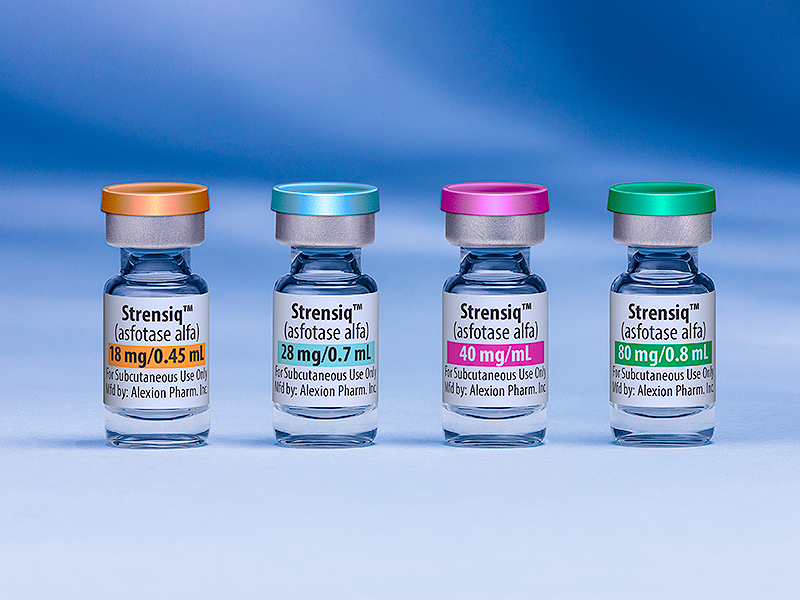Alexion price cut opens up Strensiq to more patients

NICE has recommended Strensiq in a wider group of patients with the ultra-rare disease paediatric-onset hypophosphatasia, after Alexion agreed a price cut.
In February NICE published first draft guidance limiting the use of Strensiq (asfotase alfa), a potentially life-saving treatment costing £366,000 per year per patient, to babies only.
Just seven people a year are diagnosed with the condition in England every year, which disrupts the process in which minerals such as calcium and phosphorus are deposited in developing bones.
The most severe forms of the condition tend to occur before birth and in early infancy, with nearly all infants with early symptoms dying within the first year of life, mainly because of respiratory failure.
Symptoms include defective bone formation that can lead to weakness and deformity of bones, fractures and other skeletal abnormalities, as well as complications such as profound muscle weakness, severe pain, seizures, and respiratory failure potentially leading to premature death in infants.
But a new five year deal means that Strensiq, a long-term enzyme replacement therapy, will be available to all eligible children and adults.
The final draft guidance document outlines a “managed access” scheme with defined starting and stopping criteria for treatment, aimed at preventing cost over-runs caused by ineffective treatment.
For example, babies should stop treatment if they develop serious adverse events, other life-limiting conditions, or remain ventilator dependent after two years.
Alexion has also offered a commercially confidential discount that “substantially reduced” the cost to the NHS for this drug.
Everyone who receives the treatment will be monitored and their data will be recorded in a database.
Asfotase alfa provides long term enzyme replacement therapy to restore normal development of bones and teeth.

Alexion CEO Ludwig Hantson
Alexion’s chief executive, Ludwig Hantson, said: “We worked diligently and constructively with NICE, NHS England, advocates and physicians, and are extremely pleased that we were able to reach an agreement to make Strensiq available to patients with paediatric-onset HPP in England who are most in need of treatment.”
Professor Carole Longson MBE, director of the centre for health technology evaluation at NICE, said: “The new deal, which includes a managed access agreement, between the company and NHS England means that people with the greatest clinical need for treatment can be identified and the costs and risks to the NHS have been reduced.”
The news about Strensiq emerged as European and US regulators proposed ways to cut costs of developing orphan drugs, at a time when campaigners have called for more treatments made available at lower prices.













